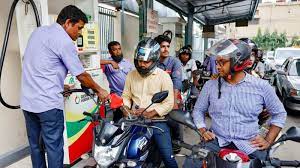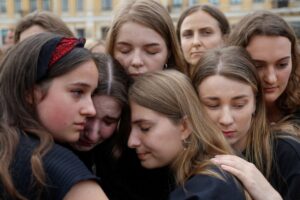
It’s Bangladesh after Sri Lanka: Protests erupt over 52% fuel price hike
Following the tragic situation in Sri Lanka, thousands of demonstrators flocked to the streets in many Bangladesh cities when the Sheikh Hasina government raised fuel prices to their highest level since the independence of neighboring countries around 52%.
Angry demonstrators surrounding gas stations throughout South Asia and demanded that the unexpected price increase reversed. The ongoing conflict between Russia and Ukraine must be blamed, according to the Bangladesh government.
Bangladesh increases fuel prices by about 50% on Saturdays, which will reduce the burden of state subsidies but increase inflationary pressure, which is currently above 7%. The economy of $ 416 billion in South Asian countries has long been one of the fastest developing in the world.
But as a result of the increase in energy and food costs caused by Russian-Ukraine conflicts, the State Import Bill has increased, requires the government to apply for loans from international institutions such as international monetary funds.
According to a statement from the Ministry of Power, Energy, and Mineral Resources, the cost of gasoline has increased by 51.2 percent to 130 Taka (around ₹ 108) per liter, the 95-Octan gasoline cost has increased by 51.7 percent to 135 Taka (Kira Kira -Kira ₹ 113), and diesel and kerosene costs have increased by 42.5 percent.
According to the ministry, the increase in fuel prices cannot be avoided given the current global market conditions. This also shows that the Bangladesh Petroleum Corporation managed by the government has lost more than 8 billion Taka (around ₹ 667 Crore) due to oil sales in six months before July.The new price seems to be tolerated by everyone. But we have no other choice. People must be patient, “Nasrul Hamid, Foreign Minister for Resources, Energy and Minerals, told reporters on Saturday
That is necessary but I never imagined such a drastic increase. I do not know whether the government meets the prerequisites for having an IMF loan,” said a government official.
The main opposition of the Secretary General of the Bangladesh Nationalist Party (BNP) Mirza Fakhrul Islam Alamgir said the government’s actions were “rubbing salt” and claiming it would have a disaster effect on the economy.
The inflation rate in Bangladesh has been above 6 percent for nine consecutive months, reaching 7.48 percent in July, which made it difficult for families to cover their daily costs and increase the possibility of civilian upheaval.We have struggled to meet our needs. Now the government has raised fuel prices, how will we survive?, “Said Mizanur Rahman, a private sector employee.
The last government raised the price of diesel and kerosene by 23% in November which in turn pushed an increase of almost 30% in transportation rates.
The price of global oil has subsided from the highest in recent weeks and closed on Friday at the lowest level since February, confused by concerns, the recession can reach fuel demand. [OR]
Benchmark Brent Crude Futures dropped below $ 95 per barrel on Friday, down from the peak of $ 133.18 in March.
In the midst of reduced foreign exchange reserves, the government has taken a series of steps, including placing restrictions on imports of luxury goods and fuel imports including liquid natural gas (LNG) and closing diesel power plants used due to recurring power outages.

